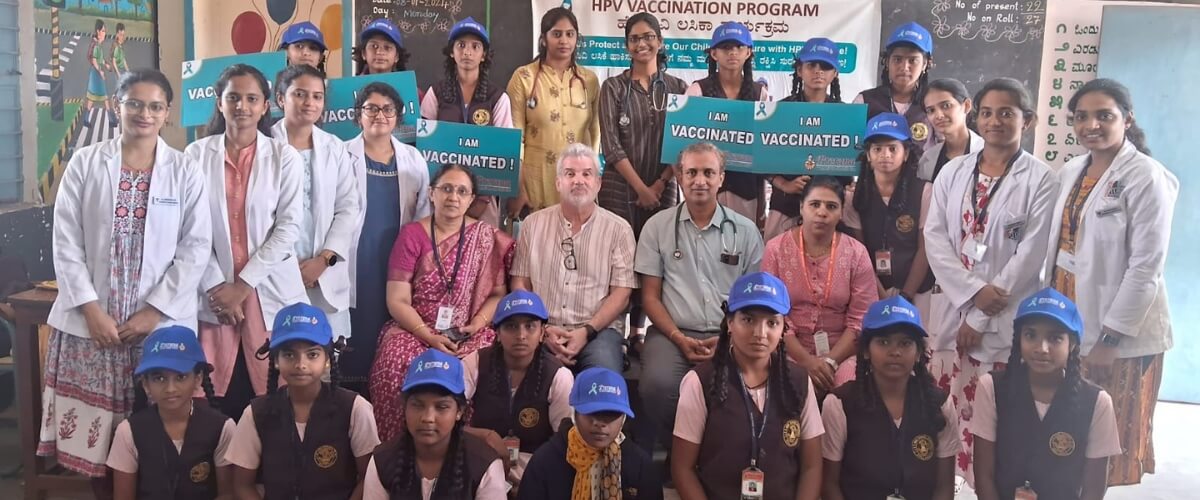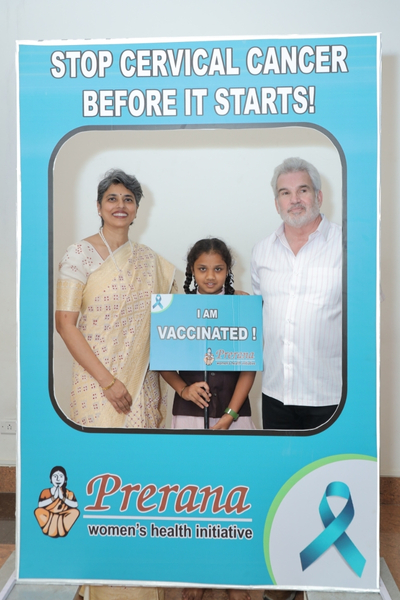Public Health Faculty Launch HPV Vaccination Project in Southern India

Dr. Karl Krupp and Dr. Purnima Madhivanan from the UArizona’s Zuckerman College of Public Health have launched an HPV vaccine demonstration project in southern India to show the effectiveness of the new single-dose vaccine to prevent cervical cancer.

Karl Krupp, PhD, and Purnima Madhivanan, MD, PhD, MPH, both faculty in the Mel and Enid Zuckerman College of Public Health at the University of Arizona, have launched a demonstration project to show the effectiveness of the human papillomavirus (HPV) vaccine in Southern India. Dr. Krupp and Dr. Madhivanan have been working on HPV vaccine acceptance in the state of Karnataka in India since 2009.
The HPV vaccine protects against cervical cancer. Cervical cancer kills almost 350,000 women globally and 90% of those deaths are estimated to occur in low-and-middle- income countries. In India, about 123,907 women are diagnosed with the disease, and almost 80,000 die each year. Cervical cancer is almost completely preventable through primary or secondary means. Vaccination, usually ages 9 to 14 years, is about 97% effective in preventing HPV infection in girls receiving a 3-dose regime. Recently, the World Health Organization has approved a single-dose regime for girls under 15 years of age which has been shown to be as effective in preventing HPV infection as two or three doses in healthy young females.
Drs. Krupp and Madhivanan aim to vaccinate 200 girls at four rural schools in the Mysore District of Southern Karnataka, with their first project having kicked off in January 2024. This scaled-up project serves as a natural extension of their previous work, and they reached out to Sun Pharma to fund the first of several demonstration projects to develop best practices for the national rollout. This project also prioritizes the involvement of all stakeholders including state policymakers, District Health Officers, panchayats, or rural level local councils elected by rural constituents, and village leaders.
“We wanted to show that with adequate outreach and education to parents and adolescent girls we could get high acceptance for the vaccine,” says Krupp. “In some ways this is an uphill battle since vaccine hesitancy has been growing in India.”
“Our early data is showing extraordinarily high acceptance for a new vaccine, with 80 – 90% uptake in the first schools,” explains Purnima Madhivanan. “We’re very excited and hope that vaccine uptake in urban areas will be as good.”
The Serum Institute of India recently announced the development of the first made-in-India HPV vaccine called CERVAVAC to be rolled out in their Universal Immunization Program. In January of 2023, the Government of India’s Ministry of Health and Family Welfare announced preparations for a phased roll-out of the HPV vaccine for girls aged 9–14 years starting with seven states including Karnataka. The HPV project in Mysore District will provide data to inform and guide the HPV vaccine campaign by the Ministry of Health and Family Welfare.
The World Health Organization and UNICEF have set a 90% coverage target for HPV vaccination of girls by 2030 to eliminate cervical cancer worldwide. About 70% of eligible girls worldwide still reside in countries that have not introduced the vaccine or made it part of their national vaccine schedules.

